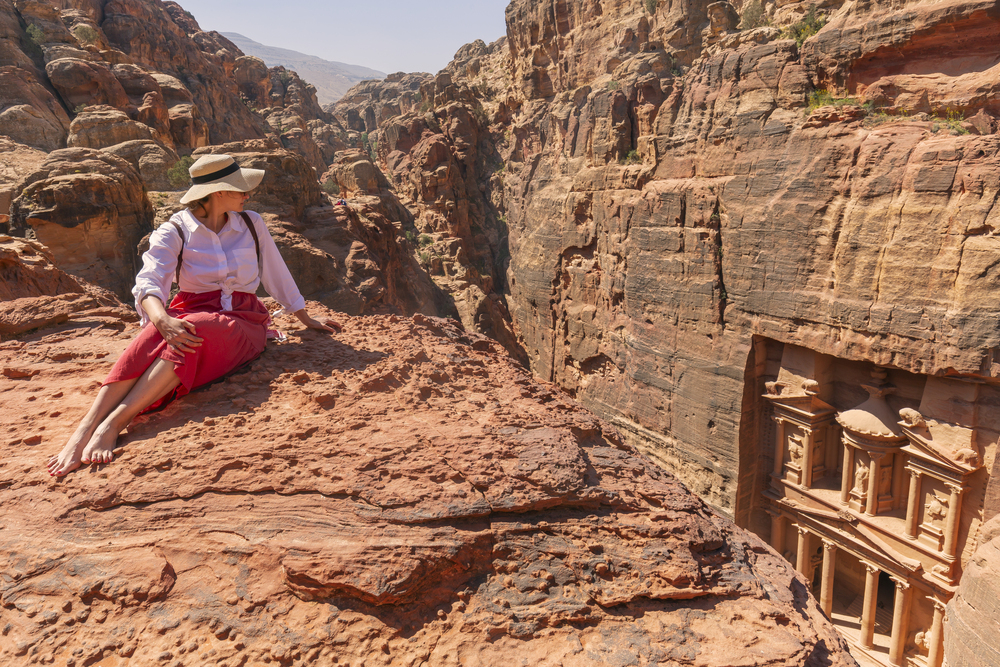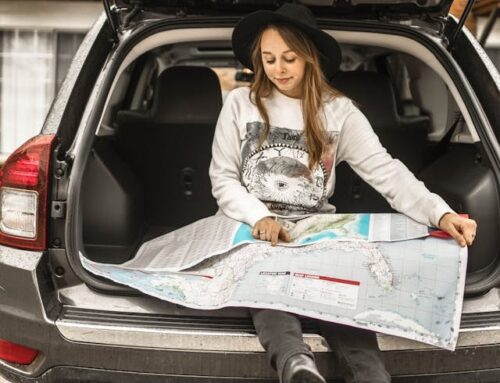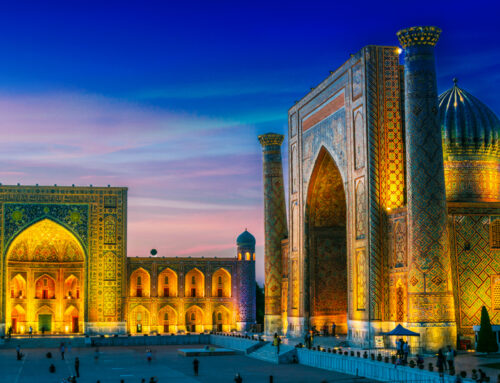Top Travel Tips for Solo Female Travellers to the Middle East

How to Navigate the Middle East as a Solo Female Traveller
Often, travelling as female solo traveler becomes quite an exciting and inspiring challenge. The Middle East boasts of art and cultural heritage, natural beauty and histories that attract the spirit of every woman out there. Nevertheless, like all the areas of the world, it is recommended to be ready mentally and know all the necessary measures concerning customs and safety. Now if you are a first-time solo traveller planning for the Middle East trip, here are some tips that might help you make your trip comfortable.
1. Research the Country’s Culture and Customs
As it is crucial to know the culture and traditions of the country you are planning to visit, it is also crucial for business people who plan to do business in the Middle Eastern countries. The social structure of the Middle East region is quite complex as it embraces different countries conventionally distinct in terms of culture, laws and living conditions. While some of them are liberal, others are conservative. You can not go scantily dressed in some countries; you have to know the culture and the way people behave towards women in order not to offend them.
For instance, a conservative dress code is a virtue in the Arabian Peninsula, KSA, UAE, and Qatar, particularly in outdoor areas. Although the headscarf is not mandatory, you are advised to dress conservatively through chest and knee coverage. In other countries, including Lebanon or Jordan, there are less strict dress codes; nevertheless, it is better to avoid wearing rather provocative clothes.
2. Respect Local Laws and Traditions
Every Middle Eastern country has its own legal framework and rules of the game. These laws may seem quite unrecognizable from ones you are accustomed to, so it is recommended that you study the particular law before travelling.
For example, in KSA or Saudi Arabia, people are legally prohibited from kissing or hugging one another, especially in public places. The acceptable age for consuming alcohol is different in different countries, and alcohol is permitted in some countries. Certain areas also have tight conditions around dealing with persons of the opposite gender outside marriage. Although it may be boring, get acquainted with the laws to avoid getting in trouble.
Further, like other Middle Eastern countries, most Islamic countries also offer Ramadan, the month of fasting, during which it is forbidden to eat and even drink in public during the daylight hours of that month. Take caution with this and try to establish the necessary routines with your meals in mind.
3. Selecting Your Host
Selecting the right accommodation while travelling solo is essential based on the preferred destination, type, location, amenities and services offered, budget, and safety measures observed. In the Middle East alone, there are many types of accommodations, including hotels, luxury hotels, hostels, etc. Choose hotels in crowded areas near tourist attractions, transport terminals, and restaurants.
Big cities like Dubai, Abu Dhabi, Cairo, or Istanbul have safe hotels and resorts, usually of a very high standard. Apart from co-ed accommodations, the environment is convenient for solo female travellers in some cities.
It is always good to read other people’s reviews, especially when it comes to finding material of the same kind online or from solo female travellers. In most cases, hotels are registered on websites such as TripAdvisor and Booking.com, and clients describe their experience in detail regarding their safety and comfort.
4. Never Lose Touch and Share Your Itinerary With Family
One of the most important things you can do to protect yourself while travelling alone is to keep in touch with people close to you. Inform someone you trust of your travelling plans, including where you’ll be staying and when you plan on departing and returning.
Familiarisation with the locals also entails using social apps, such as Google Maps, WhatsApp, and other local transport apps. Always have some power in your phone, and if you want, buy a SIM card from the country or opt into an international plan to improve communications.
It is also advisable to call your friends or family to inform them how you are doing on your trip. For instance, apps named “MySafety” or “TravelSafe” can share your current position with friends or relatives and provide you with relevant contact details in cases of Emergency.
5. Getting Familiar with the Transportation System
The general transport flow in the region depends on the country of concern in the Middle East. They are safe, easy to use, and all public transportation, such as buses, taxis, and metros, especially in large cities such as Dubai and Abu Dhabi. The metro system is quite adequate, and the taxis can be hailed quickly all over the city. Buses, trains and other forms of public transportation may be crowded depending on a station, country or city – for example, Cairo or Marrakech.
Whether you are hiring an ordinary taxi or Uber, Careem, etc., ensure that the driver is the one you ordered based on the information in the application. The night is better avoided on public transport, mainly if you are a stranger in the city.
In most areas, especially towns and the countryside, there may be fewer options of means of transport. This means you may have to depend on private taxis or local mini buses if available. Never just hail a cab on your own; it’s always wise to consult the hotel or someone you know to get the best and safest car.
6. Stay Safe and Keep Out of Danger
Overall, the Middle East is safe for tourists, but being alert is always advisable, especially when alone. Always and firmly carry your property, and do not stroll alone at night, especially in the less crowded districts.
When planning to use a car to visit remote places, it is wise to be conscious of your whereabouts and when you may reach the destination. This means the following should be avoided: Committing dangerous acts, such as taking too much alcohol or walking to parts of the town at night that are not familiar.
There are also social networks. Beware when using social networks or talking to people online. While most people are kind, fraudulent schemes and other dangers exist worldwide. Listen to your inner voice and avoid stimuli that will cause you uneasy feelings.
7. Free Yourself For Local Foods But Not Everywhere
Everyone who loves food should consider visiting the Middle East. Whether it is kebabs and hummus, fresh salads, or sweet pastries, something will make your mouth water in the region. Sampling local food markets and restaurants while on a trip is always exciting when travelling solo.
However, avoid getting food and water that could be harmful in the flooded areas. Do not consume tap water; always use water from a sealed bottle. If one is a picky eater, has food allergies, or just has to stick to eating organic food, then such a person should learn some basic phrases in the local language.
8. Trust Your Instincts
Out of all the solo female traveller tips, let your instinct be your best guide. Ladies, save yourself if something is wrong; do not stay there. In any country, but significantly far away, one must always trust one’s instincts.
Whether you decide not to talk to a stranger or avoid going somewhere, listen to yourself. As a woman, if you require assistance or direction or are in a situation where you need the authorities, feel free to approach women or the police.
9. That is the Beauty of the Region
The Middle East has areas of interest that various experts have described as having breathtaking natural features. From the Red Sea coast to Jordan’s desert and even up to the stunning skyline of Dubai, beautiful places are just waiting to be discovered.
Do not be a stranger to embarking on excursions to natural and tourist sites, such as Petra in Jordan, the Egyptian Pyramids, or the ancient city of Iraq. A solo traveller needs to define their travel goal and embrace the country’s aesthetics.
Final Thoughts
Going to the Middle East solo is always an excellent experience for women. Therefore, you can go on a fulfilling and safe trip if you follow research, respect for culture and surroundings, and cultural beauty and awareness. Alas, there isn’t a single trip without difficulty, and yet the issue here is not decision-making itself but rather practical preparation to empower you Ato explore this wonderful region.
****************************




